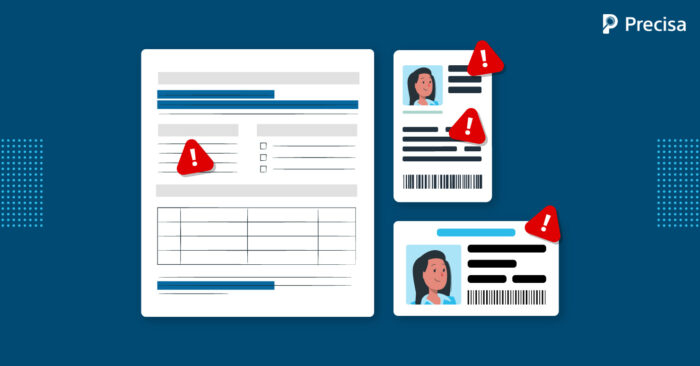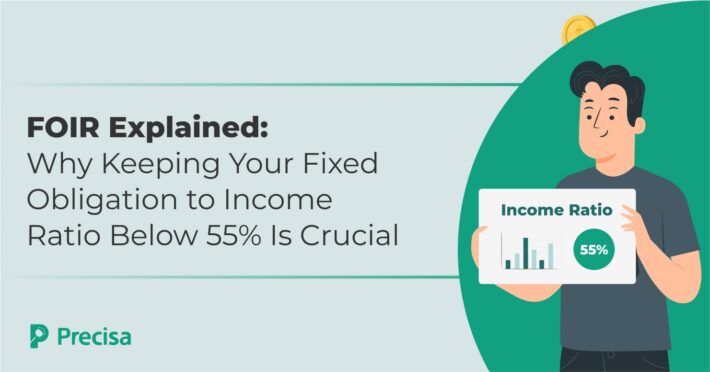6 Common Pitfalls To Avoid In The Credit Appraisal Process

Digital transformation has influenced the rate at which business or personal loans can be disbursed.
As of 2023, the value of the digital lending market in India is estimated to be $ 350 billion, primarily driven by fintech startups and non-banking financial companies (NBFCs).
Despite this growth, loan rejection rates are also climbing. For instance, data from the Federation of Automobile Dealers’ Association (FADA) indicated that the rejection rate for two-wheelers loans had grown by 31%.
The credit appraisal process plays a vital role in determining the fate of loan applications.
In this blog, let’s understand the credit appraisal process. Also, how borrowers can avoid common pitfalls that show up in the process and lead to loan rejections.
What Is The Credit Appraisal Process?
When a borrower applies for a business or personal loan, lenders, such as banks, non-banking financial companies, and neo-banks, must be convinced they can repay the loan during the desired tenure. Therefore, they need to comprehensively evaluate their creditworthiness to ascertain the credibility and legitimacy of the borrower.
But how do lenders establish the creditworthiness of a borrower? The process by which lenders thoroughly assess a loan application to determine has come to be known as the credit appraisal process.
This detailed process requires lenders to evaluate all available financial data before giving the go-ahead for loan delivery. A lender will approve or reject the loan application based on the credit appraisal process findings.
Avoid These 6 Mistakes in Credit Appraisal Process
Some common pitfalls show up in the credit appraisal process, which leads to loan rejections. Awareness of these red flags can help borrowers take the necessary action to course correct, improve creditworthiness, and enhance their chances of accessing a loan.
Here is a run-down of common pitfalls in the credit appraisal process:
1. Too Many Loan Approvals in a Short Time Frame
If lenders observe that the same loan applicant has taken multiple loans in a brief period of time, they may be hesitant to approve the loan application. Also, they could be concerned about repayment potential since other loans are already in the pipeline.
2. Unverified Borrower Identity Credentials
Verifying a borrower’s identity is essential to the credit appraisal process. However, borrowers may incur challenges on this front.
For instance, their name may be spelt differently across various identity proof documents such as PAN card, driver’s license, and AADHAAR card.
Therefore, borrowers must make sure to ensure uniformity across all documents.
3. Unverified Borrower Address Proof Credentials
Address proof is another key requirement for the credit appraisal process. However, many borrowers may be residing in multiple residences. They may also have left their hometowns for work purposes.
This discrepancy in address proof can challenge the credit card appraisal process. Hence, borrowers must try to consolidate documents and have a uniform address across relevant documents.
4. Inadequate Documentation Received by Lenders
Loan applications require a specific number of documents to process the loan. Borrowers often do not have access to all their documentation. Yet, they might be in a hurry to get the loan processed. In the process, they may forget to submit important documents.
Incomplete loan applications are often a reason for loan rejection. The lending company may not even inform the loan applicant of the missing documents. This is because loan appraisers process thousands of applications every day.
- Low Credit Score
Credit scores are a key metric lenders use in the credit appraisal process. This unique score determines one’s creditworthiness based on credit repayment history. The lower the score, the less likely one will sail through the credit appraisal process.
Poor consumer habits, such as credit card debt, late payments, and maxing out credit cards, collectively reduce one’s credit scores. Hence, borrowers are advised to demonstrate consumer behaviour that helps increase their credit score proactively.
6. Irregularities in Financials Statements
Lenders review borrowers’ financial status in detail to understand the loan applicant’s financial history. They may use financial analysis tools for a comprehensive and accurate analysis.
Here is a list of potential red flags that can influence the credit appraisal process negatively:
- Lenders review bank statements in detail. They assess fiscal health using metrics like assets, liabilities, and equity. Any discrepancies can work against a loan application.
- The lender will also review income sources to assess a borrower’s loan repayment potential. If the borrower cannot demonstrate a steady flow of income, their loan application may be negatively impacted.
- Cash flow is another important metric when understanding the financial health of a business which needs a business loan. Negative cash flows can impact a business’ operational efficiency and, in turn, its ability to repay the loan.
- Strictly profitable businesses have a higher chance of sailing through the credit appraisal process. Conversely, those demonstrating unfavourable return on equity (ROE), net profit margin, and tax liability are less likely to secure a loan.
The Takeaway
The credit appraisal process is an inseparable step in a borrower’s ability to access a loan. Awareness of the potential pitfalls in the process can give borrowers more power to build creditworthiness and access credit for their needs.
To make it more efficient, Several lenders are leveraging tech-enabled financial data analysis solutions to make the process more thorough and efficient. Such tools enable lenders to scrutinise lenders comprehensively.
A tech-enabled credit appraisal process can also bring more accuracy to the process and process more loan applications at scale.
Presica’s comprehensive and seamless financial data analysis solution simplifies and speeds up the process through automation.
The software provides actionable insights on a customisable dashboard, thus helping companies make informed business decisions.
Request a free demo today!




